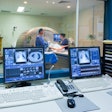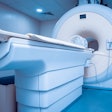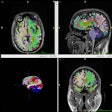A team of Cleveland Clinic researchers has found that implementing a modular educational intervention goes a long way toward improving radiologists' trust in their MRI-related safety decisions.
A 12-week initiative increased confidence in MRI safety decisions in 95% of the almost 300 radiologists who participated, according to a team led by Alexander Scott, MD, of the Cleveland Clinic Foundation. The group's findings were published June 16 in Abdominal Radiology.
"The MRI safety training was well received and led to measurable improvements in both subjective confidence and objective performance on safety-related tasks," Scott and colleagues noted.
New imaging indications and increased patient complexity have "increased the burden on radiologists for MRI safety related concerns and queries," the group wrote, and recent MRI safety events -- such as a police raid on an MRI facility and an MRI noncompatible wheelchair brought into the suite -- have increased public concern about the safety of the modality. That's why, "as the responsible MR imaging physician," radiologists must track a variety of safety issues, including approving or denying MRI exams on patients with implants, devices, metallic foreign bodies; answering questions related to MRI safety; and responding to contrast reactions, it explained.
"Having a solid foundation in MRI safety knowledge is critical to performing competently as an MR radiologist," the team wrote. "Inadequate training and unfamiliarity with [American College of Radiology] MRI safety guidelines and protocols has the potential to create exam delays, inappropriate cancelations, or adverse safety events."
A preintervention survey found that 39% of radiologists didn't feel comfortable making MRI safety-related decisions, and that 78% wanted more education, guidance, and information about MRI safety, with participants citing "unfamiliarity with MRI institutional safety policies and procedures," a "lack of formal training," "communication difficulties," "infrequent/novel MRI safety requests" as factors that contributed to a desire for more training.
Scott and colleagues conducted a 12-week educational intervention between September and December 2023 that included 292 in-training and staff radiologists and featured seven sections:
- Accessing MR Safety Policies and Guidelines
- Potential Injury During MRI
- Metallic Foreign Bodies/Shrapnel
- MRI Conditional Versus MRI Non-Conditional Implants
- MRI Safety for Specific Implants
- MRI Contrast Safety
- MRI in Pregnancy
They assessed the intervention's success with pre- and postintervention test knowledge scores (range: 0 to 100), and noted the following:
- 95% of participants who completed the module and tests reported that the intervention increased their confidence level in making decisions or performing tasks related to MRI safety.
- The preintervention knowledge score regarding MRI safety was 47, while the post-intervention score was 86 (p< 0.001).
"[Our] results support the effectiveness of a structured, formal educational intervention in addressing identified knowledge gaps in radiologist MRI safety preparedness," Scott's team concluded. "Longitudinal follow-up with yearly training and assess¬ment will hopefully only further interventional efficacy."
The complete study can be found here.




.fFmgij6Hin.png?auto=compress%2Cformat&fit=crop&h=100&q=70&w=100)

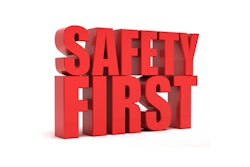

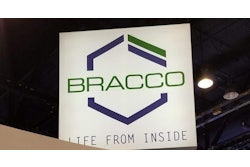
.fFmgij6Hin.png?auto=compress%2Cformat&fit=crop&h=167&q=70&w=250)




